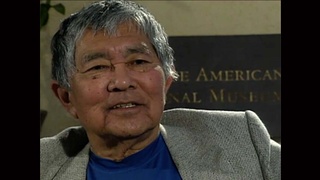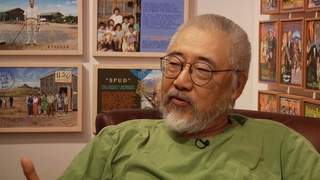Interviews
Receiving a negative reaction from father upon asking about World War II experience
I remember asking my father, once, What was that thing we experienced in camp? I remember even putting it that way. And my father just went into this rage, and, because I think he felt that we had passed that point of even bringing it up any longer, that we had not talked about it long enough that it should have disappeared completely from our collective memories. And I just remember how upset he got from me bringing it up and saying, We don't need to talk about that. We want, we're trying to forget it, don't ever bring it up again. And that was it. That was it. And he was so emphatic that I never did bring it up again, despite the fact that...
I think I was in high school at the time that this happened. And it probably wasn't until reparations in the late '70s that we were able to talk about it again. But of course he had to sort of get permission. He had to make sure that other people were talking about it before he would talk about it.
Date: March 18 & 20, 2003
Location: Washington, US
Interviewer: Alice Ito and Mayumi Tsutakawa
Contributed by: Denshō: The Japanese American Legacy Project.











